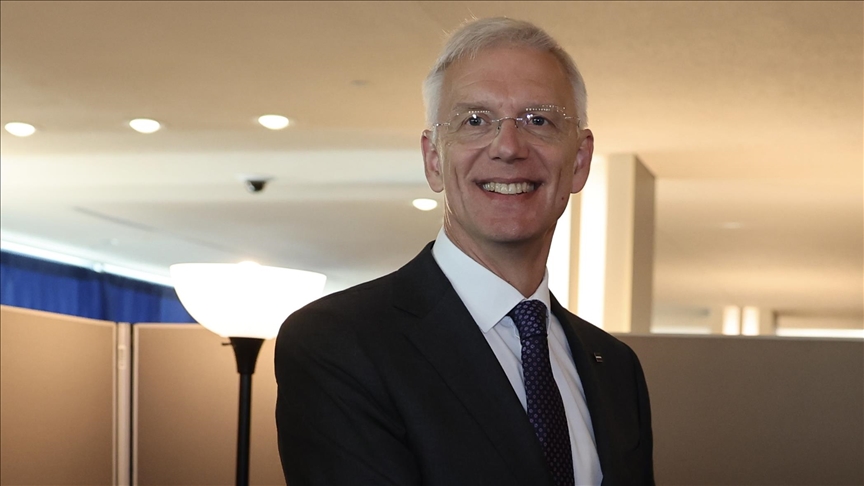RIGA, Latvia
Europe needs to reconnect with voters to fend off the current populist wave, according to Latvia’s Foreign Minister Krisjanis Karins.
“There is a certain amount of discontent in some parts of Europe that probably has a lot to do with the economic ramifications of Russia’s war in Ukraine,” he said in an interview with Anadolu.
“People may be looking for easy answers to difficult problems,” he added, referring to the growing trend of support for populist leaders in parts of the continent.
The party of populist pro-Russian politician Robert Fico won the most seats in the recent elections in Slovakia, while Poland’s nationalist ruling Law and Justice (PiS) party is leading polls ahead of the Oct. 15 parliamentary elections.
In Hungary, a nationalist-populist government has ruled since 2010. The populist trend was started in Budapest, and Warsaw has followed suit since PiS came to power in late 2015 on the back of an anti-immigration campaign.
PiS has said it will not supply Ukraine with arms until there is a resolution to an ongoing influx of cheaper Ukrainian grain into Poland, which has lowered incomes for Polish farmers, a key constituency for the party.
While solidly pro-Ukraine, PiS is playing on a residual Polish antipathy towards foreigners, with Germany being portrayed as a colonial power in the region.
As the war in Ukraine drags on, parts of Central and Eastern Europe have witnessed rising societal opposition toward helping Kyiv against Russia.
The region’s shift away from its traditional dependence on Russian energy since the war started in Feb. 2022 has further aggravated rising prices of energy and with inflation in double digits, some parts of the region have changed their positions regarding support for Ukraine.
“Right now, I am optimistic that Europe will remain united in our approach to Ukraine and in our condemnation of Russia and the sanctions regime,” Karins told Anadolu at the 14th Annual Forum of the EU Strategy for the Baltic Sea Region, held in Latvia’s capital Riga.
Poland and Hungary are also engaged in an ongoing spat with the European Commission over democratic backsliding, with the EU executive withholding funds for the two countries.
Both Poland and Hungary have also opposed the EU’s proposals to allocate migrants across the 27-nation bloc, saying they will not accept migrant quotas.
“But it’s something we as politicians need to think about how to address the real needs of our voters in dealing with the aftereffects – the effects – of Russia’s war in Ukraine. Because if we look at all the current difficulties, they all stem from Russia’s war in Ukraine: inflation, energy etc, that all goes back to that,” said Karins.
“So we also need to keep explaining to people, reminding them, why we have difficulties and the kinds of policies that governments have to ameliorate some of that pressure,” the minister concluded.

